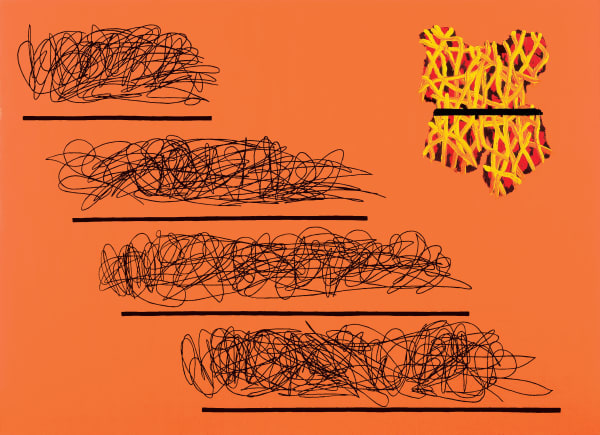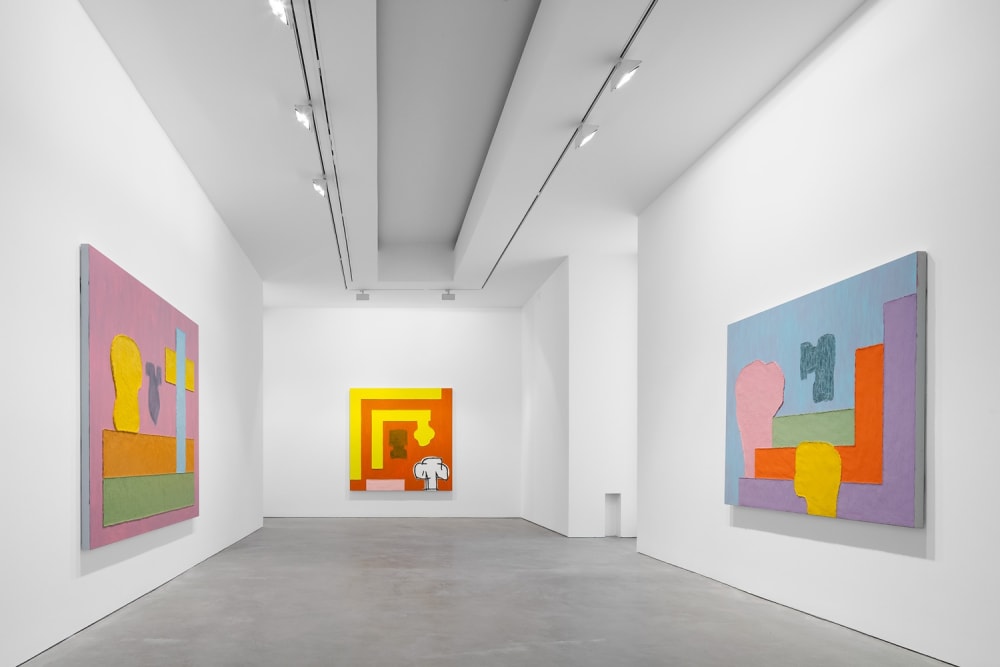The Eighties: JONATHAN LASKER
-
Introduction
The exhibition, The 80s, summarises Jonathan Lasker’s early works of the 1980s by showing some pivotal works from that period, when, in the face of an increasingly conceptually-oriented art, he engaged with the potential of painting, developing the abstract formal idiom that has come to characterise his oeuvre. During his studies at one of the cradles of concept art, the California Institute of the Arts, in the 1970s, Lasker took up the challenge of questioning and redefining the painterly medium. He subsequently devised a self-referential painterly system with a vocabulary of sign-like forms and colours which he has repeatedly varied and reformulated to this very day.
Lasker’s pictorial means range from a scriptural, seemingly intuitive drawing to pastose, protruding, three-dimensional paint applications that create a tension with the planar composition of the background surface. Right at the start of his career, the artist found himself confronted each and every time with the problem of pictorial invention. In the exhibition catalogue Lasker himself says: “(…), I realize that one of the things which I’ve forgotten about my past self is how much he struggled with each of these paintings. I now realize that many of these works were either seminal or, at least, at the early stages of one breakthrough of another. The self of the painter called Jonathan Lasker, was by no means a given, but rather in the process of being searched for and made.” (Jonathan Lasker, One’s Self, By Chance, in: Jonathan Lasker. The 80s, London 2011, p. 6)
Lasker’s compositions question the traditional perception of the relationship between fore- and background, plane and figure. In the 1985 work, Heavy Mental, for example, the artist first used a palette knife to apply the blue bars in thick layers, and then painted the brown background around them. The overlapping brown and blue parts enable the viewer to follow the painting process.
The painting, When Dreams Work, from 1992 forms a link to the 90s and its incisive formulation is a first indicator of Lasker’s further development. As of 1986, the artist began to draft his compositions in small format and great detail, and then subsequently reproduce them with great precision on a large scale. Now, the organic, subjective-gestural pictorial idiom of his earlier works was replaced by an increasingly intellectual process which the artist has constantly under his control and which excludes any elements of chance. Whereas the studies still testify to a spontaneous graphic gesture, in the paintings the artist transfers the individual forms and signs to the canvas layer by layer, in a stringently calculated way.
-
Installation Views
-
Works
-
Artists on view
-
Inquire about works by The Eighties







